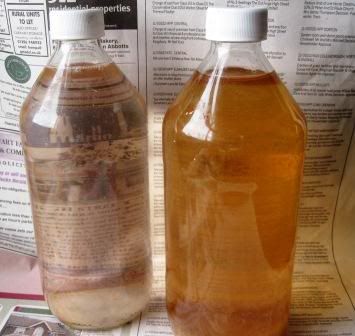Afternoon All,
I've been reading up on how juice can be extracted from rhubarb by the freezing/defrosting method which appears to work really well.
It got me wondering if this method would work on other fruit or is it most effective with rhubarb only? I'd be interested if others have used this method on other fruits with reasonable success.
Cheers,
Steve
I've been reading up on how juice can be extracted from rhubarb by the freezing/defrosting method which appears to work really well.
It got me wondering if this method would work on other fruit or is it most effective with rhubarb only? I'd be interested if others have used this method on other fruits with reasonable success.
Cheers,
Steve




